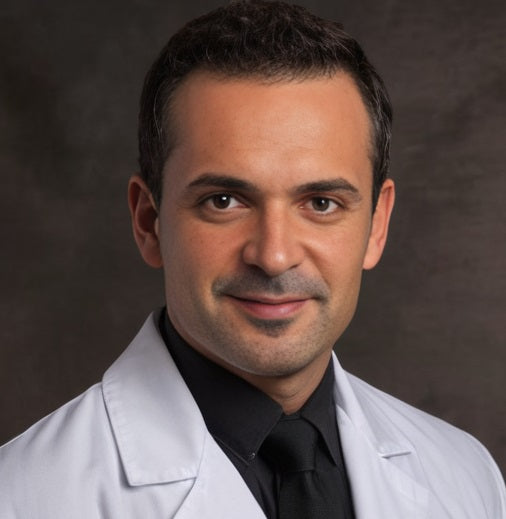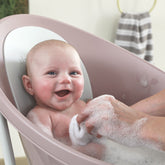What Is a Perineal Tear?
A perineal tear is a natural tear in the perineum—the area between your vagina and anus—during vaginal childbirth. While your body is designed to stretch during labor, sometimes the baby’s head puts too much pressure on the area, causing it to tear. Perineal tears are very common, affecting up to 90% of first-time moms who have a vaginal birth. The good news? Most tears heal well with proper care, and there are ways to help prevent them.Types of Perineal Tears
Not all perineal tears are the same. They range from mild to severe, depending on how deep they extend:First-Degree Tear (Mild)
Small tear in the skin of the perineum.Usually heals on its own without stitches.
Mild discomfort, but quick recovery.
Second-Degree Tear (Moderate)
Extends deeper into the muscle beneath the skin.Requires stitches, but heals within a few weeks.
Most common type of perineal tear.
Third-Degree Tear (Severe)
Extends through the perineal muscles to the anal sphincter (the muscle controlling the anus).Requires stitches and a longer recovery.
May cause discomfort when sitting or using the bathroom.
Fourth-Degree Tear (Most Severe)
Extends through the perineum, anal sphincter, and into the rectum.Requires surgery and careful postpartum care.
Less common but may cause long-term bowel issues if not properly managed.
What Increases the Risk of a Perineal Tear?
While perineal tears can happen to anyone, certain factors increase the risk:- First vaginal birth – The perineum hasn’t stretched before.
- Large baby (over 8.8 lbs or 4 kg) – More pressure on the perineum.
- Fast labor – Less time for tissues to stretch gradually.
- Forceps or vacuum-assisted birth – These tools can increase the risk of tearing.
- Shoulder dystocia – When the baby’s shoulders get stuck.
- Episiotomy (surgical cut) – Sometimes leads to a larger tear.
How to Prevent Perineal Tears
While there’s no guaranteed way to prevent tearing, these strategies may help:1. Perineal Massage (Starting at 34-36 Weeks)
- Helps stretch the perineal tissues before birth.
- Use natural oils (like coconut or vitamin E oil).
- Massage in a U-shape using gentle pressure.
2. Warm Compresses During Labor
- A warm, damp cloth on the perineum during pushing can increase elasticity and reduce tearing.
3. Controlled Pushing (Guided by Your Midwife/Doctor)
- Avoid pushing too hard, too fast—let your perineum stretch slowly.
- Try breathing techniques instead of forced pushing.
4. Birthing Positions That Reduce Pressure
- Side-lying or hands-and-knees positions put less strain on the perineum.
- Avoid lying flat on your back, which can increase the risk of tearing.
5. Staying Hydrated & Keeping Skin Healthy
- Well-hydrated skin is more flexible and elastic, reducing the chance of tearing.
Healing and Recovery After a Perineal Tear
If you experience a perineal tear, proper postpartum care can help speed up healing and reduce discomfort.Postpartum Care Tips
Keep the area clean – Use warm water and a peri bottle after using the bathroom.Ice packs – Reduce swelling and pain in the first 24-48 hours.
Pain relief – Over-the-counter acetaminophen (Tylenol) or ibuprofen (Advil) can help.
Sitz baths – Soaking in warm water can soothe soreness.
Avoid constipation – Eat fiber-rich foods, drink water, and use a stool softener if needed.
Rest and avoid straining – No heavy lifting or strenuous activities.
How Long Does It Take to Heal?
- First- and second-degree tears – Usually heal within 2-3 weeks.
- Third- and fourth-degree tears – May take 6+ weeks and require physical therapy in some cases.
Severe pain, swelling, or fever (possible infection).
Difficulty controlling bowel movements (after a severe tear).
Stitches opening or signs of poor healing.
The Bottom Line
Perineal tears are common but manageable, and most heal well with proper care. Preparing your body with perineal massage, warm compresses, and controlled pushing may help reduce the risk. If you do experience a tear, gentle postpartum care and patience will ensure a smooth recovery.

Content Reviewed by Dr V.
Learn MoreDr. Vaheh Shirvanian, a family medicine physician and father. With over 17 years of experience, he specializes in inpatient acute hospital care, outpatient family medicine, urgent care, emergency medicine, and hospice care. Dr. V is passionate about guiding new parents through the challenges and joys of parenthood, offering compassionate and expert support at every step.
Tags:








